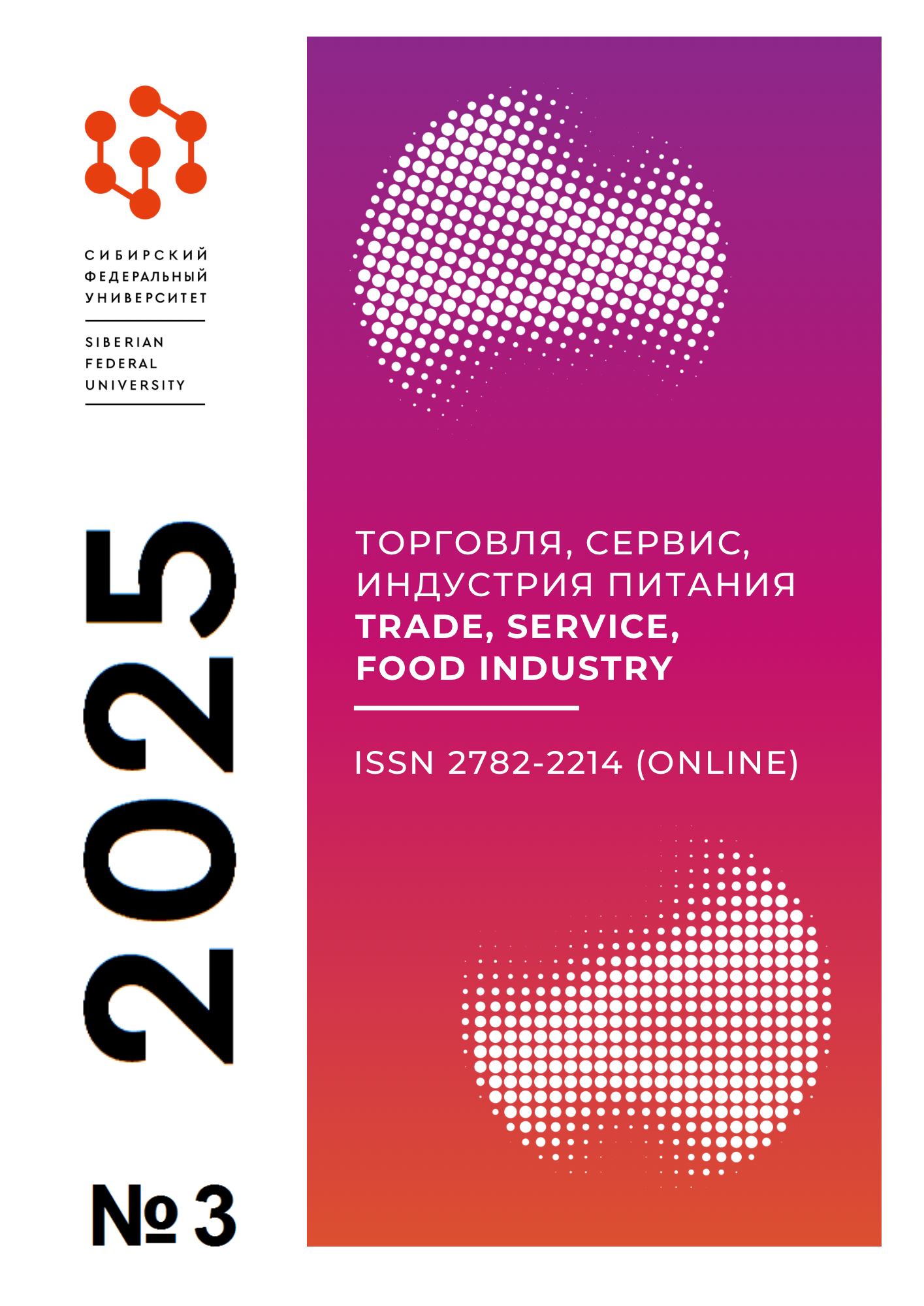Krasnoyarsk, Russian Federation
UDC 338.48
The article describes the development of inclusive tourism as an important element of the tourism and hospitality industry. The analysis of the basic concepts of the research topic is carried out: inclusive tourism, inclusive environment, people with special needs, low mobility groups of population. The article considers the connection with the implementation of state policy in the field of tourism development and in the areas of accessibility for different categories of citizens, including those with special needs. The statistical analysis reveals a number of factors that directly affect the quality of tourist services provided to people with special needs: the dynamics of change in the number of people with special needs in the Russian Federation, the number of important infrastructure buildings that meet accessibility requirements for people with special needs, the number of transport staff trained in interaction with and in provision of services to people with special needs. There are some main topics in this article like the socio-economic aspects that emphasize the impact of affordable travel services on the quality of life of people with special needs. The advantages and barriers to implementing the concept of inclusive tourism are highlighted. The results of the research were summarized and a general conclusion was formed based on the analysis of the collected data. There have been identified ways to improve the quality of services and to increase the level of service aimed at meeting the needs of all categories of tourists. The research uses methods of analysis, statistical data collection and information comparison. The main sources of information were reports from government agencies, analytical companies, statistics on the tourism and service market, and social research based on the special needs of people with disabilities.
inclusive tourism, hospitality, accessible environment, people with special needs
1. Vizova, A. K. (2020). Problems of creating a barrier-free environment in buildings for guests with special needs. Theory and practice in the field of tourism and hospitality, 1, 30–34.
2. Gadgieva, A. K. (2020). Regional policy in the field of inclusive tourism. Tourism for people with special needs: trends and potential for the development, 1, 21–25.
3. Asmaryan, A. A. (2021). Inclusive area as a factor of increasing demand in the tourism industry using the example of foreign experience. Strategies and current trends in the development of tourism and hospitality businesses, 1, 38–44.
4. Yakimenko, M. V. (2021). Review of the current state and prospects of inclusive tourism development in Russia: formation of a complex representation. Service in Russia and abroad, 3, 27–36.
5. Makarova, D. D. (2023). Hotel service for people with hearing disorders. Problems and prospects of tourism development in the Russian Federation, 6, 98–102.
6. Koshechkina, E. A. (2020). Problems and prospects of tourism for people with special needs in the Leningrad region (by the example of Luzhsky District). Tourism for people with special needs: current status and development potential, 1, 67–72.
7. Stroeva, A. D. (2020). Inclusive tourism as one of the directions in the global tourism industry. Step into science, 3, 826–829.
8. Churilina, I. N. (2020). Some approaches to the definition of Inclusive tourism. Tourism for people with special needs: current state and development potential. Strategies for the development of modern science, 3, 123–125.
9. Konavalova, E. E. (2021). Strategies and modern trends in the development of tourism and hotel businesses. Hotel business, 4, 273–275.
10. Latysheva, A. A. (2022). Innovative approaches in tourism services. News of the St. Petersburg State University of Economics, 3(135), 82–88.
11. Eronkevich, N. N. (2023). The factors of development and the model of socially responsible business in the management system of a modern company. Journal of Economics, Entrepreneurship and Law, 13(12), 5297–5308.
12. Petrik, L. S. (2020). Social tourism as a driver of the development of an inclusive environment of hotel enterprises. Bulletin of the Samara State University of Economics, 194(12), 60–66.
13. Kositsyna, Z. S. (2024). The connection with general and quality management in modern socio-economic conditions. The role of science and education in the modern information society, 1-2(31), 45–50.
14. Ivanov, A. A. (2023). Individual guest service as a tool to increase competitiveness in the hotel business. Hotel business, 8, 482–489.
15. Arkhipova, A. A. (2020). The digital ecosystem in the tourism industry. Modern Science, 7, 38–42.
16. Bochkov, A. U. (2023). The introduction of digitalization in the tourism sector using the example of the Kaliningrad region and the border territories of Poland and Lithuania. Geopolitics and ecogeodynamics of regions, 1, 184–194.
17. Moldagalieva, A. E. (2023). The model of tourism development. The current research, 16 (146), 2–6.
18. Morozov, M. A. (2020). Innovative trends in tourism and the hotel business. Natural Sciences and Humanities research, 28 (2), 196–202.
19. Shestakova, E. V. (2021). Digital innovations in the field of socio-cultural service and tourism. Strategies for the development of modern science, 7, 63–67.
20. Yakimenko, M. V. (2020). Cognitive modeling of innovative development of tourist and recreational clusters under global digital transformation in the context of sustainable development. Modern problems of service and tourism, 4, 69–85.
21. Madiev, Sh. M., Vishnevskaya, A. V. (2025). The main directions of rehabilitation and habilitation of persons with special needs. Bulletin of Science, 3, 539–553.
22. Romayeva, N. B., Solovyova, I. V. (2025). Professional orientation and self-determination of students: regional monitoring. The world of science, culture, and education, 2, 278–281.
23. Yaroshenko, N. N. (2022). Inclusive creative practices in the developing space of Russian culture. Bulletin of the Moscow State University of Culture and Arts, 5, 133–141.
24. Kuraev, A. N., Morozova, I. G., Grunina, A. A. (2023). Evolution of the concept of corporate social responsibility and ways of its development in modern Russia. Omsk Scientific Bulletin, 8, 116–123.
25. Popodko, G. I. (2023). Priorities of inclusive development of the Angara-Yenisei macroregion. Economics Profession Business, 3, 67–77.








